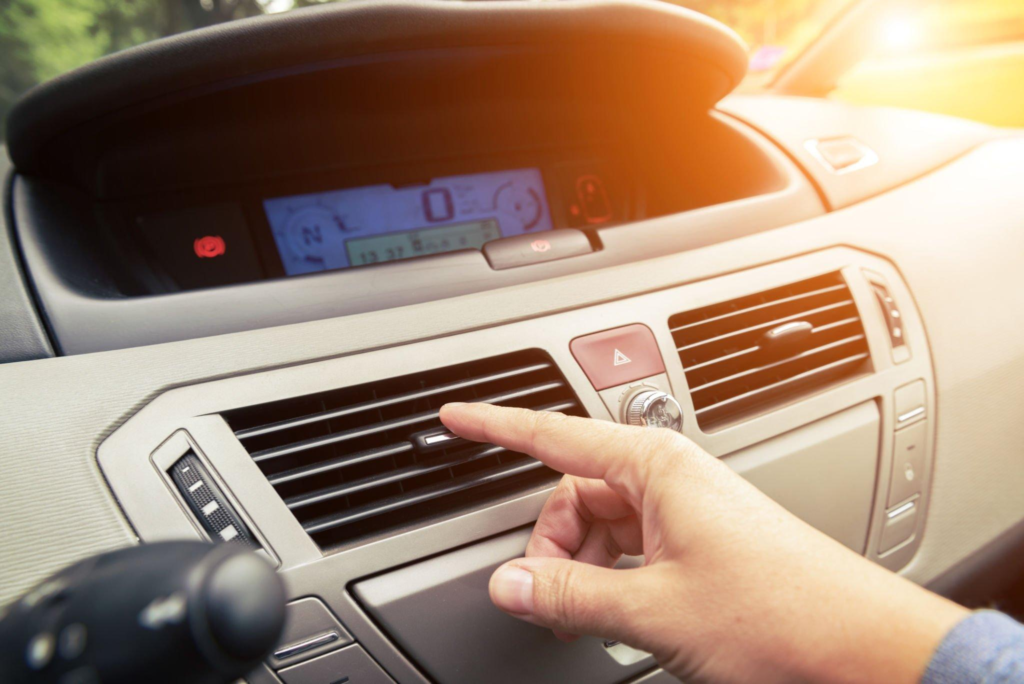Car heating systems are essential for comfort and safety during cold weather. However, it can be frustrating when the heat in your car only works sometimes. This inconsistent heating can be caused by several factors, ranging from a simple issue like a blocked heater core to a more complex problem like a malfunctioning thermostat.
Here, we will explore the common reasons why does the heat in my car only work sometimes and provide tips on diagnosing and fixing the problem. Whether you are a seasoned DIY enthusiast or just looking for some basic information, we have something for you. So, let’s dive in and find out why your car’s heat only works sometimes and what you can do about it!
Reasons Why Does The Heat In My Car Only Work Sometimes

There are several reasons why the heat in your car may only work sometimes. Some of the most common causes include:
- Thermostat Issues: The thermostat is responsible for regulating the temperature in your car’s heating system. If it is not working properly, the heat may only work sometimes or not work at all. A faulty thermostat can be caused by a variety of factors, including a clogged air filter, low coolant levels, or a broken thermostat.
- Blocked Heater Core: The heater core is another component for heating the air that is circulated into the car’s cabin. If the heater core becomes clogged with debris or rust, it can reduce the flow of hot coolant and cause the heat to only work sometimes.
- Low Coolant Level: If the coolant level is too low, there will not be enough heat to circulate into the car’s cabin, resulting in inconsistent heating.
- Issues with the Blower Motor or Fan: The blower motor or fan circulates air through the heater core and into the car’s cabin. If the blower motor or fan is not working properly, it can limit the amount of hot air that is circulated into the car, causing inconsistent heating.
- Clogged Hoses or Air Vents: If the hoses or air vents in your car’s heating system become clogged with debris, it can limit the flow of hot air and cause inconsistent heating.
- Electrical Problems: Electrical problems can also cause inconsistent heating in a car. A malfunctioning relay, fuse, or wiring can prevent the blower motor or fan from functioning properly and cause inconsistent heating.
- Water Leaks: One of the most common causes of inconsistent heating in a car is a water leak. If the coolant system is leaking, the coolant level will drop, and there will not be enough heat to circulate into the car’s cabin. This can cause a drop in heating and even damage other parts of the car’s heating system.
- Coolant System May Be Airlocked: An airlock in the coolant system can prevent the coolant from flowing properly, causing inconsistent heating. An airlock can occur when there is air trapped in the system, preventing the coolant from flowing freely. This can be caused by a leak in the system or a change in the coolant level.
- Faulty Heater Fan: The main task of the heater fan is to circulate air through the heater core and into the cabin. If the fan is not working properly, it can limit the amount of hot air that is circulated into the car, causing inconsistent heating. A faulty fan can be caused by a variety of factors, including a clogged air filter, low coolant levels, or a broken fan motor.
- Heater (hot water) Control Valve: The heater control valve regulates the flow of hot coolant into the heater core. If the valve is not functioning properly, it can prevent the flow of hot coolant, causing inconsistent heating. This can be caused by a faulty valve, clogged hoses, or a clogged heater core.
- Blend Doors: The blend doors direct the flow of hot and cold air into the car’s cabin. If the doors become stuck or damaged, they can limit the flow of hot air, causing inconsistent heating. This can be caused by worn hinges, broken actuators, or damaged doors.
- Leaky Radiator: A leaky radiator can reduce the coolant level in the system, causing inconsistent heating. This can be caused by a variety of factors, including a damaged radiator, clogged hoses, or a malfunctioning thermostat.
- Faulty HVAC Controls: The HVAC (heating, ventilation, and air conditioning) controls are responsible for regulating the temperature in the car’s cabin. If the controls are not functioning properly, it can cause inconsistent heating. This can be caused by a faulty control panel, a broken cable, or a damaged control module.
- Faulty Wiring or Blown Fuses: Electrical problems can also cause inconsistent heating in a car. A faulty wiring harness or a blown fuse can prevent the blower motor or fan from functioning properly and cause inconsistent heating.
- Air in the System: Air in the coolant system can cause inconsistent heating. An airlock can prevent the coolant from flowing freely, causing inconsistent heating. This can be caused by a leak in the system or a change in the coolant level.
- Faulty Heater Valve: The heater valve regulates the flow of hot coolant into the heater core. If the valve is not functioning properly, it can prevent the flow of hot coolant, causing inconsistent heating. This can be caused by a faulty valve, clogged hoses, or a clogged heater core.
These are some of the most common reasons why the heat in your car may only work sometimes. It is important to diagnose and fix the problem as soon as possible to ensure the comfort and safety of you and your passengers during cold weather.
How To Solve Inconsistent Heating In A Car Problem

Solving inconsistent heating in a car may involve the following steps:
Replace the thermostat: If the thermostat is faulty, it may need to be replaced to regulate the flow of coolant into the engine.
Replace the blower motor: The blower motor may need to be replaced if it is not functioning properly.
Replace the heater core: If the heater core is clogged or damaged, it may need to be replaced to provide consistent heating.
Bleed the coolant system: If there is an air lock in the coolant system, it may need to be bled to allow the coolant to flow properly.
Replace the coolant: If the coolant levels are low or the coolant is contaminated, it may need to be replaced to provide consistent heating.
Clean the air ducts: If the air ducts are blocked, they may need to be cleaned to allow the flow of hot air.
Replace the air filter: If the air filter is clogged, it may need to be replaced to ensure proper airflow.
If you are unsure about performing these repairs yourself, it is always best to consult a professional mechanic to avoid further damage to the car.
Tips And Tricks For Consistent Heating In A Car
Here are some tips and tricks to help ensure consistent heating in your car:
- Regular Maintenance: Regular maintenance of your car’s heating system is essential to ensure consistent heating. This includes checking the coolant levels, replacing the air filter, and having the system professionally inspected.
- Use the right type of coolant: Using the right type of coolant for your car is important for consistent heating. Consult your owner’s manual or a professional mechanic to determine the right type of coolant for your car.
- Avoid quick temperature changes: Avoid quickly turning the heating system on and off, as this can cause temperature fluctuations and inconsistent heating. Instead, gradually adjust the temperature to ensure consistent heating.
- Keep the air ducts clear: Keep the air ducts clear of debris to ensure proper airflow and consistent heating.
- Keep the engine warm: Start your car and allow it to run for a few minutes before driving to ensure the engine reaches its normal operating temperature. This will help ensure consistent heating during your drive.
- Use a good quality radiator anti-freeze: Using a good quality radiator anti-freeze will help prevent coolant from freezing, which can cause inconsistent heating.
- Insulate your car: Insulating your car with weather stripping or a car cover can help retain heat and ensure consistent heating.
FAQs About Heat In My Car Only Work Sometimes

Why Does My Car Only Blow Hot Air While Driving?
The heat in a car may only work while driving if there are problems with the coolant levels, blocked air ducts, a faulty thermostat, blower motor, heater core, air locks in the coolant system, or other related components.
Can I Drive My Car If The Heater Is Not Working?
Yes, you can drive your car if the heater is not working, but it may not be as comfortable. The heater is not a necessary component for the safe operation of a car.
How Often Should I Check My Car’s Heater?
It is recommended to check your car’s heater regularly, especially before the winter season, as part of your annual vehicle maintenance routine. Checking the heater annually helps ensure it is functioning properly and can help address any issues before they become bigger and more expensive to repair. If you notice any signs of a problem with the heater, such as a lack of warm air or strange noises, have it inspected immediately.
Does The Car Heater Have A Fuse?
Yes, many cars have a fuse for the car heater. The fuse is used to protect the heating system from electrical problems and can be located in the vehicle’s fuse box.
Final Words
Inconsistent heating in a car can be caused by a variety of factors, including leaks in the coolant system, a faulty heater fan, a faulty control valve, and issues with the car’s HVAC system. To solve this problem, it may be necessary to replace parts such as the thermostat, blower motor, or heater core, and to perform regular maintenance such as bleeding the coolant system and cleaning the air ducts. Additionally, there are several tips and tricks that can help ensure consistent heating in a car, such as using the right type of coolant, avoiding quick temperature changes, and insulating the car.
You May Also Like:
The Essential Guide to Blown AC Fuse In Car Symptoms
Will Wheel Weights Stick To Ceramic Coating?
Why Car AC Stops Blowing Cold Air After A While -Troubleshooting Tips
Blown Fuse Car Won’t Start? Here’s What You Need to Know
Why Brake and Battery Light On After Replacing Alternator?
What to Do When Your Battery Light Stays On After Key Pulled?


